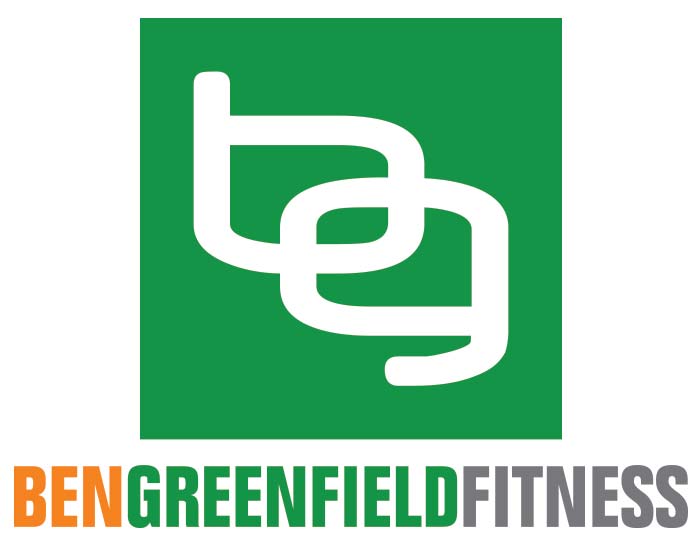All About Overtraining
Many people engage in what I would call “under-reaching”. Individuals who “under-reach” typically arrive at the gym and perform light exercise at an intensity that is insufficient to achieve weight loss or boost fitness levels. However, there is a truth to the mantra “Something Is Better Than Nothing”, and even under-reachers are doing better for their bodies than if they hadn’t shown up to exercise at all.
On the other hand, there are “over-trainers”. Over-trainers work out at a very high intensity, sometimes accompanied by a high volume that may include multiple exercise sessions in a single day. While high-intensity and high-volume training is not necessarily harmful, long periods of time (weeks or months) spent training in this mode, especially in non-elite athletes, can lead to inadequate or incomplete recovery, which can not only be very dangerous and detrimental to the body, but can also work directly against weight loss or fitness goals. If overtrained for long enough, an individual can completely crash, become chronically ill and fatigued, and be forced into complete rest for up to 3 months! Let’s look at three variables: 1) how overtraining occurs; 2) common signs of overtraining; 3) what to do if you’re overtrained.
1. How overtraining occurs:
- Inadequate recovery between training sessions
- Too much high intensity training, typically for too long
- Sudden drastic increases in distance, length, or intensity of exercise routine
- Daily intense weightlifting
- High volumes of endurance training
- No vacations, breaks, or off-seasons
- For athletes, excessive competition at high levels (i.e. trying to win every race)
- Inadequate nutrition, typically in the form of caloric and carbohydrate/fat restriction
- Insufficient sleep
- High amounts of stress and anxiety
2. Common signs of overtraining:
- Excessive fatigue/lethargy, especially outside of the gym
- Loss of motivation, energy, drive, and enthusiasm to train
- Loss of sex drive
- Increased stress, anxiety, irritability and feelings of depression
- Insomnia, sleep problems, or nightmares
- Poor concentration, hyperactivity and an inability to relax
- Large fluctuations in weight
- Loss of appetite
- Constant excessively sore and/or weak muscles
- Increased susceptibility to sickness and injury
- Lower performance in competition, such as racing
- Higher resting heart rate and elevated resting blood pressure
- Longer periods of time for heart rate recovery to normal levels after exercise
- Diarrhea, nausea, or headaches
- Menstrual irregularities
If you experience just one or two of these symptoms, it does not mean you are overtrained. However, several symptoms taken together should be strongly indicated with overtraining, and you should take immediate action.
3. What to do if you’re overtrained:
- Stop exercising. This is easier said than done for most people who are prone to overtraining. By setting aside a few days, and sometimes up to two weeks, to allow for the body and mind to recover, you will enable yourself to return to an exercise program even stronger and more focused than before.
- Reduce the number of sets and reps, length of time, or intensity of training. For example, if you currently do 45 minutes of cardio before your weightlifting routine, lower to 20 minutes. If you perform 5 sets of an exercise, perform 2-3 instead. If you sit in spinning class at 180 beats per minute, try not to let the heart rate exceed 160 bpm. Continue to adjust variables until your overtraining symptoms subside.
- Introduce recovery days and weeks. Every fourth week, for example, lower both the volume and the intensity of each workout. Or choose two days of the week, such as Sunday and Wednesday, in which you perform only light recovery exercise. This type of strategy is common among athletes, who call it “periodization”.
- Relieve tension and stress. There are many ways to manage muscular tension and mental anxiety, including massage, meditation, yoga, hot baths, aroma therapy, and soothing music. Try to include a time during the day that involves a relaxation component, even if it is just 10-15 minutes of gentle breathing and light stretching in the morning.
- Identify nutritional deficiencies in your diet. Inadequate restoration of the body’s fuel needs after a workout can lead to a state of overtraining. Directly following any exercise, adequately refueling the body with a mixture of proteins and carbohydrates should be a priority. As a basic component of the body’s hormones, cells, and tissues, healthy fat should not be avoided, but consumed in moderation. Consume high quantities of fruits and vegetables to avoid vitamin and mineral deficiencies, and be sure to drink water before, during, and after exercise.
- Listen to your body. An excessively sore or weak muscle should be given rest. A good rule of thumb is to allow 48 hours before working the same muscle group. If that muscle group is still sore, you may need to wait even longer – sometimes up to 5 days! This may mean that you need to change your training schedule, but sometime the body needs a break from the normal routine!
Often, overtraining is a gradual onset. An individual who begins an exercise routine may be given the impression that if “some is good, then more is better”. Typically, when starting into an exercise program, it is easy to lose high amounts of weight almost immediately. When this weight loss levels off (or “plateaus”), the temptation is to work even harder to continue to achieve the same results that initially occurred. In doing so, more and more time is spent not only exercising at high intensities for long periods of time, but also fretting and worrying about the apparent lack of results. Overtraining commonly occurs in such a situation – which just makes the problem worse, since it is even harder to get results when the body is broken down and overtrained!
The body does not grow stronger, fitter, or leaner while you are working out. Instead, rest and recovery outside of exercise allows for repair of damaged muscle fibers, restoration of glycogen stores (muscle fuel), and restoration of hormone levels that are essential for normal bodily function. Proper balance of these components is essential to a healthy body, a high metabolism, decreased levels of fat storage.
So remember to allow yourself to rest, The regeneration that occurs during recovery will allow you to see better results from your training and avoid injury, excessive fatigue, and lack of motivation to exercise. A personal trainer can be a great source for receiving a customized training plan that includes the perfect exercises to achieve the results you desire, with optimal work and recovery ratios. So if you want the best results, consider talking to a fitness professional!
If you’d like my FREE newsletter and weekly audio podcast, simply visit https://bengreenfieldfitness.com. For more personalized online fitness coaching, fat loss, human performance or nutrition consulting, you can also visit Greenfield Fitness Systems at http://www.pacificfit.net.
Until then, train smart!
Ben Greenfield
M.S. PE, NSCA-CPT, CSCS


 The mission of Greenfield Fitness Systems is to give you everything you need to achieve amazing feats of physical and mental performance without destroying your body and mind. Under the direction of world renowned fitness expert Ben Greenfield, we combine cutting-edge science, holistic nutrients, self-quantification, biohacking, and strategies straight from the trenches to provide you with every plan, supplement, food, tool, test, and solution to bring you to the next level - whether you want to do an Ironman triathlon or just shed a few pounds.
The mission of Greenfield Fitness Systems is to give you everything you need to achieve amazing feats of physical and mental performance without destroying your body and mind. Under the direction of world renowned fitness expert Ben Greenfield, we combine cutting-edge science, holistic nutrients, self-quantification, biohacking, and strategies straight from the trenches to provide you with every plan, supplement, food, tool, test, and solution to bring you to the next level - whether you want to do an Ironman triathlon or just shed a few pounds.

Hi I am a 25 year old male, I was eating plant based diet and doing crossfit and running. I also have a lot of stress since i’m a 3rd year med student. Three months ago, I started noticing high blood pressure, elevated heart rate, feeling really on edge, insomnia. I stopped exercising for three weeks, which wasn’t good for my mood. I started incorporating light exercise back into my routine. 4 weeks ago, I felt like I was in a good place to hit the gym again, but yesterday I started feeling the same symptoms I’ve experienced at the beginning. How do I proceed forward? I’m taking a few days off of exercising, but I don’t want to hold off for too long because my mood was significantly affected last time.
Brady, I am not a doctor and this is not to be taken, interpreted or construed as medical advice. Please talk with a licensed medical professional about this. I have tons of resources on reducing stress/anxiety. Just do a search at BenGreenfieldFitness.com. Here's a podcast to check out to get you started though: https://bengreenfieldfitness.com/podcast/lifestyl… I would also look into HRV training as a way to gauge if and how hard you should train on a particular day: https://bengreenfieldfitness.com/podcast/self-qua… Also, this is a great topic for the Kion Community. It's a completely free online community of like-minded people who both have advice and are seeking advice! Facebook.com/groups/getkion/ If you prefer a more direct, customized approach, I'd be happy to help you via a personal one-on-one consult. Just go to http://greenfieldfitnesssystems.com/coaching and then choose a 20 or 60-minute consult, whichever you'd prefer. I can schedule ASAP after you get that.
I am 70 and have been fit and athletic most of my life. I have observed that I train a lot harder than most other people I see in the gym. My problem is I have a lot of the symptoms of overtraining like elevated resting heart rate, sore and aching muscles and joints and fatigue etc. The perspective you offer is useful, but I need a lot more detailed information about how and how much exercise to get as well as how to tell how much is too much and, in particular, how I can achieve the training effect at my age. Do you have any suggestions about where such information is obtainable?
Thanks
Hi Angus, I would look into using HRV as a gauge to determine if and how hard you should train on a particular day. You can learn more about that here: https://bengreenfieldfitness.com/podcast/self-qua… I would also enourage you to join/post this question to the Kion Community. It's a completely free online community of like-minded people who both have advice and are seeking advice! Facebook.com/groups/getkion/ If you prefer a more direct, customized approach, I'd be happy to help you via a personal one-on-one consult. Just go to http://greenfieldfitnesssystems.com/coaching and then choose a 20 or 60-minute consult, whichever you'd prefer. I can schedule ASAP after you get that.
You article was very informative.